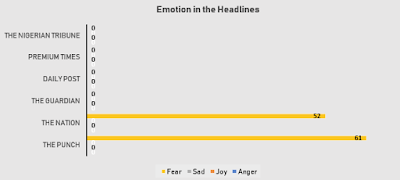“Ladies and gentlemen, let me illustrate my concerns more
concretely. Without being immodest, I can claim to have experience in matters
relating to our national debt especially foreign ones. As military Head of
State during the era of excess funds in banks and credit institutions abroad
after an increase in oil price in the 1970s which led to a sudden upsurge in
liquidity, we were begged to borrow using the same argument as we have today
that we were under-borrowed. This led to the first ‘jumbo loan’, as it was
called then, of one billion dollars.
By the time I came back as a democratically-elected
President, a little over twenty years later, we had two problems of debt –
London Club which constitutes private creditors that have formed a cartel of
creditors ganging up against us and making economic life difficult for us as a
nation; and Paris Club which was the Western government creditors taking up
what we borrowed in cash and kind from them and buying some debts of their
private sector organisations.”
That was former President Olusegun Obasanjo yesterday (December
27th, 2019) at a public function. This extract
is the
part of the speech he delivered at the function. The extract and others in
his speech have been used by the media, to convey the gravity of debts Nigeria
is owing. In our analysis, we reported
how the headline of a
prominent national newspaper is increasing people’s interest in the country’s
debt. In the analysis, we noted how people in the southern region had significant
interest
in understanding the debt than those in the northern region.
 |
| Source: Newspapers, 2019; Infoprations Analysis, 2019 |
Our 24hours’ real time data indicate that former President
Olusegun Obasanjo and President Muhammadu Buhari’s net worth were used by
people to know the debt. Former Vice President, Alhaji Atiku Abubakar and
former Governor of Lagos, Senator Bola Ahmed Tinubu were equally employed to
understand the debt and its implications. Analysis further indicates that one
percent interest in former President translated to 8.4% of the need to
understand the debt. However, analysis suggests that one percent interest in President
Muhammadu Buhari did not yield significant interest in the debt and bankruptcy.
The result reveals 9.0% and 2.0% reduction in understanding the debt and bankruptcy.
 |
| Source: Newspapers, 2019; Infoprations Analysis, 2019 |
Newspapers and Their
Emotional Status
Since The Punch newspaper led in writing headline that reinforces
fear in the public mind about the debt, our analyst did emotional, engagement
and impression analyses. This becomes imperative because of the need to know
the extent to which people understood the issues (debt and bankruptcy) and the actors
(Olusegun Obasanjo and Muhammadu Buhari).
On average, the select newspapers had 49.5 for engagement, 34
for impression. The Punch and The Nation had highest emotional status. When we
analysed the mean score of public interest in the actors and issues along with the
engagement score, analysis reveals 1.5% connection. For the impression score,
we found 89.4% linkage between the two, suggesting the use of context words as
the most significant factors for having an interest in the issues and the
actors not the use of the former President’s name.

Comments
Post a Comment